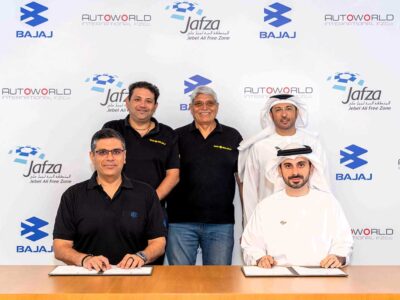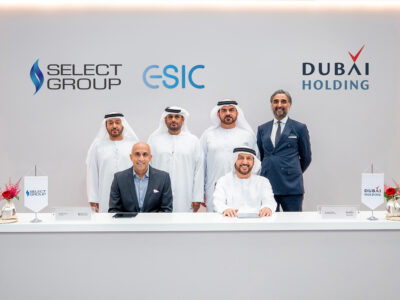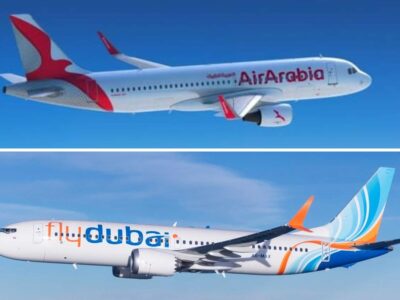Right now, business isn’t easy. But some companies are still doing well. They are not just surviving, but actually reaching new levels of performance. CW spoke to a few of them to find the factors that are helping them thrive, while others struggle.1. Spread risk and diversify your customer base
It is all about risk. The industry saw the financial crisis sweeping across the West, and foresaw that expansion in the GCC could be a risky business. So what’s the best way to deal with risk? Spread it.
“The bursting of the bubble was triggered by external forces. Everybody knew it would come, but not as soon as it did, and not to that extent,” says Ulma Formworks general manager Andreas Gathmann.
So Gathmann moved immediately to spread the risk beyond the borders of the UAE. “We prepared by ensuring we had a foot in other markets,” he says. Ulma furthered operations in KSA, Qatar, Oman, Abu Dhabi and also Egypt.
“Of course our volume of business was affected but we are maintaining and even increasing profitability,” Gathmann says.
Recent start-up Cladtech took a similar approach. In the words of president Giampiero Alessandrini, the firm, which started operations last September, “started moving when everything crashed.”
“Being a lean organisation in terms of people we were able to move our focus immediately from a single country to other markets,” says Alessandrini. “On top of Dubai we shifted focus to Abu Dhabi, Saudi Arabia and Qatar.”
Drake & Scull International, a contractor prominent in the MEP sector, is still performing well despite the ongoing downturn, says executive director civils, Saleh Muradweij. This is because the company has resolutely guarded against putting all its eggs into a single basket.
Just over two years ago it diversified its portfolio of services and established independent functioning units focusing on infrastructure, water and power (IWP) services, in addition to civil contracting. “Together with our portfolio of MEP projects, this has given us the advantage of diversifying our risks and maintaining growth despite the slowdown,” says Muradweij.
2. Control your cash
In tough, mid-credit crunch times, cash is king, no matter what market you are in.
“Businesses live and die by the cash they have, and it was our goal to have free cash flow,” says Andreas Gathmann.
Ulma Formworks’ renewed focus on the rental market facilitated the firm’s cash flow ambitions, along with a careful approach to ensuring the finances of its customers.
“Look for new opportunities, new products or systems. You have to explore every angle available to you,” Gathmann says.
As companies are affected by economic changes, the willingness to collaborate in small-scale joint ventures has increased, as Cladtech has discovered.
“By doing so we have the cost benefit, while at the same time we have avoided the burden of taking too many people on board,” says Giampiero Alessandrini.
Alessandrini says that such opportunites may not have been so forthcoming were it not for the tough times.
“Try to use more outside resources,” he says, “You can get very good deals with companies to work together, which will help you to face any kind of problem without burdening you with costs.”
3. Add value…
“Even the downturn has its upside,” says Laith Haboubi, business development manager of Mapei. “People are being more discerning. They want to provide more value to their customers. Our products are a little more expensive, but the price is right the first time.”For years the firm, which specialises in adhesives and chemical products for the building industry, has been supplying developments, like the Burj Al Arab and Dubai Airport Terminal 1, direct from its native Italy, but 18 months ago bosses decided to move closer to their market and set up in Dubai.
4. … and be cautious
“Since that time we have really gone from strength to strength. It’s nice that people do see us as successful in the market,” said Haboubi, who has worked for Mapei since its UAE launch.
“It’s a very cautious company. The way it grows worldwide is that it plans everything meticulously. It doesn’t go for massive growth and it doesn’t chase high risk markets.
Haboubi says it is Mapei’s long-term approach that has made the company more resilient to the changing market.
“We haven’t had to make any changes at the moment. All the strategies we have put into place in the last 18 months seem to be bearing fruit. We’re keeping an eye on the market and I think we’re small enough and flexible enough to adapt.”
And the key to survival? “I think it’s the cautious approach and having the flexibility to adapt to the market as it changes.”
5. Be flexible
Flexibility is a survival essential. Companies that have been unable to adapt are starting to struggle.
“No management team or company can survive if they do not have the flexibility to adapt to a changing environment,” says Saleh Muradweij. “Drake & Scull has always had the vision and the willingness to change as the market changes. In 2006, we began developing green solutions. In 2007, we acquired a civil construction company to expand our business. In 2008, we expanded our geographical reach into Sudan and Bahrain.”
“What has worked for us has been carefully-planned expansions. It is imperative to have the ability to adapt and be flexible to change.”
6. Play a team game
The importance of the human element has also been pinpointed as a key factor in the success of Drake & Scull.
“We have an excellent team of dedicated professionals, each of which has been individually picked based on their experience and skills,” says Muradweij.
“It is because of our team that we have enjoyed excellent planning and great execution, which has definitely given us an edge in what we do. We also believe in our people and their development. We are taking advantage of these tougher times to invest in our current team, as well as attracting further talent.”
“A company’s strength lies solely in its human assets, and these assets have to be taken care of and nurtured,” he says.
The same applies even more strongly to businesses that have developed out of a family background, as Zeyad Al Jaidah will attest. He and his business partner, Abdulla Alansari, developed TechnoQ, one of Qatar’s largest and most comprehensive systems integrators.
According to Al Jaidah, tradition and family were crucial to his initial success and remain so, especially in the midst of the global recession. The fact is, he says, he is simply not allowed to fail.







